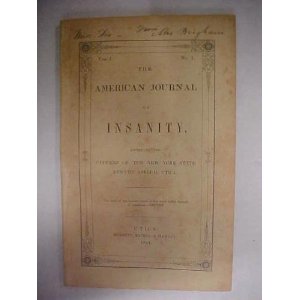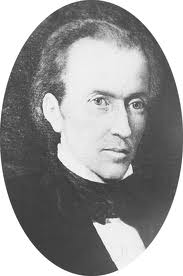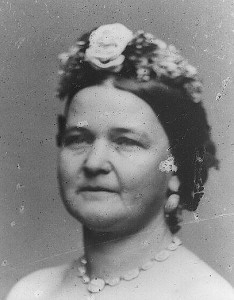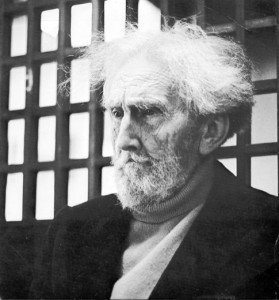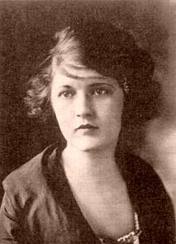Alienists were notorious for their self-confident belief that they knew what was best for anyone with mental illness. In an essay from the July,1868 issue of the American Journal of Insanity, the (anonymous) author makes a case for doing away with legal procedures for commitment: “. . . other diseases, except those of a highly contagious type, do not call for civil interference nor court publicity.
We do not demand a commission or an inquest to decide whether a man has a fever raging into delirium, or whether he has a general paralysis, or whether a surgeon shall be permitted to amputate his limbs or trepan his skull.”
The writer went on to point out that if anyone saw a person sick or wounded in the street, “we take him forthwith to the nearest hospital, without stopping to canvass our legal right to restrain him of his liberty.”
The author lamented that a patient stricken with insanity was sometimes met with a suspicious relative who wasn’t convinced of his illness even though his other relatives were. Because of this suspicion, the patient, “against the wishes and judgment of the rest,” was then liable to the “questioning of the law and its ministers.” This then led to publicity, which might be detrimental to the patient’s recovery.
Most people, of course, would not want to be committed involuntarily to an insane asylum, and welcomed legal safeguards to prevent it. It is amazing to consider how differently alienists and laypeople considered the matter–it almost certainly boiled down to who was in control of the situation.



